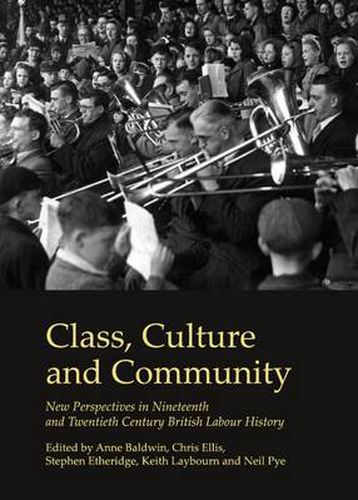Readings Newsletter
Become a Readings Member to make your shopping experience even easier.
Sign in or sign up for free!
You’re not far away from qualifying for FREE standard shipping within Australia
You’ve qualified for FREE standard shipping within Australia
The cart is loading…






In recent years, historians have debated fervently on the reason for the decline of British Labour History as an academic discipline. Most certainly the challenge of Thatcherism to the working classes and trade unions in the 1980s, and the fragmentation of Labour history into gender studies, industrial studies and women’s history, have contributed to its apparent decline. Post-modernists’ challenges to the concept of class, culture and community have done their damage. As a result Labour history , in its broad-school sense, has been taught less and less in British universities. Yet it survives and there are grounds for believing that it will revive.This collection of chapters arose from a conference held at the University of Huddersfield in November 2010, held under the auspices of the Society for the Study of Labour History, where nineteen papers were presented. Ten of this disparate array of papers form the basis of this collection. The theme of community and localised struggle form the first section, ranging as it does from the newspapers’ representation of Yorkshire miners to brass bands and the development of separate culture. The second section deals with the more traditional trade unionism and varieties of industrial struggle. The third section focuses upon the political aspects of working-class activity, drawing upon the role of women, and Labour policy on steel nationalisation and defence. The fourth deals with radicalism, ranging from the failure of Chartism, the policy of working-class organisations to emigration, and the failure of the soft section of the British left in the 1920s and 1930s. There is no all-embracing concept here for what is a varied collection of chapters. However, what can be said is that British Labour history continues to provide new areas for research. Indeed, its death as an academic discipline has been greatly exaggerated. This collection of book chapters represents the current revival in Labour history which has emerged in a form that brings together community and culture alongside class and political representation to explore the breadth and depth of working-class identity.
$9.00 standard shipping within Australia
FREE standard shipping within Australia for orders over $100.00
Express & International shipping calculated at checkout
In recent years, historians have debated fervently on the reason for the decline of British Labour History as an academic discipline. Most certainly the challenge of Thatcherism to the working classes and trade unions in the 1980s, and the fragmentation of Labour history into gender studies, industrial studies and women’s history, have contributed to its apparent decline. Post-modernists’ challenges to the concept of class, culture and community have done their damage. As a result Labour history , in its broad-school sense, has been taught less and less in British universities. Yet it survives and there are grounds for believing that it will revive.This collection of chapters arose from a conference held at the University of Huddersfield in November 2010, held under the auspices of the Society for the Study of Labour History, where nineteen papers were presented. Ten of this disparate array of papers form the basis of this collection. The theme of community and localised struggle form the first section, ranging as it does from the newspapers’ representation of Yorkshire miners to brass bands and the development of separate culture. The second section deals with the more traditional trade unionism and varieties of industrial struggle. The third section focuses upon the political aspects of working-class activity, drawing upon the role of women, and Labour policy on steel nationalisation and defence. The fourth deals with radicalism, ranging from the failure of Chartism, the policy of working-class organisations to emigration, and the failure of the soft section of the British left in the 1920s and 1930s. There is no all-embracing concept here for what is a varied collection of chapters. However, what can be said is that British Labour history continues to provide new areas for research. Indeed, its death as an academic discipline has been greatly exaggerated. This collection of book chapters represents the current revival in Labour history which has emerged in a form that brings together community and culture alongside class and political representation to explore the breadth and depth of working-class identity.